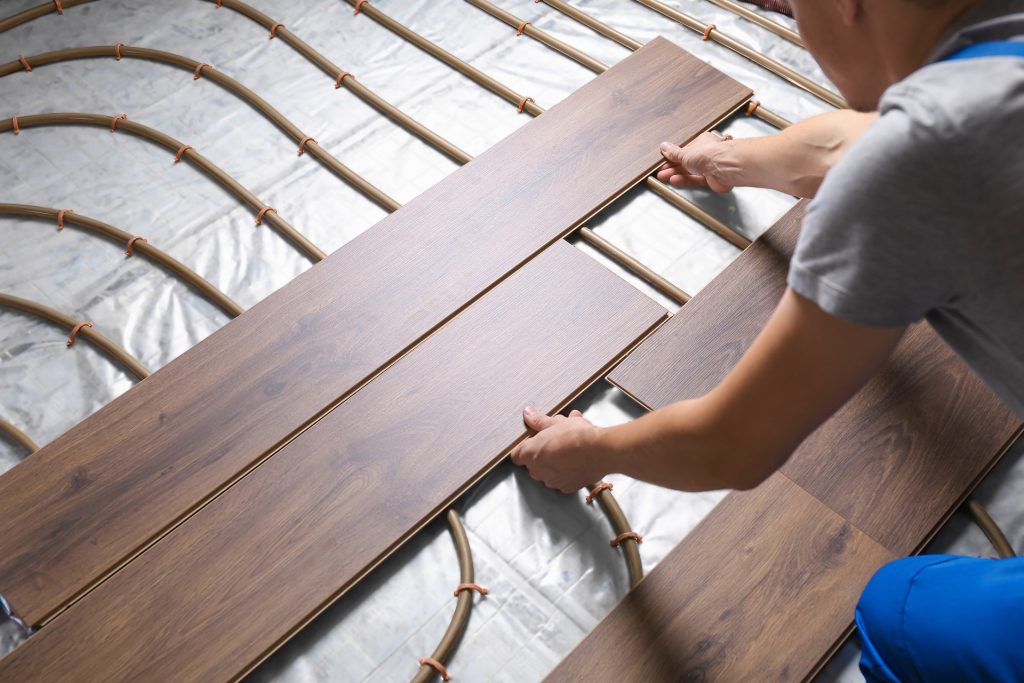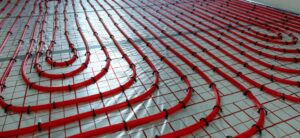Radiant heat is a sustainable and green option for new homes and those undergoing renovations. This post outlines a few reasons why so many environmentally-conscious homeowners choose radiant heat to warm their homes.
The Science of Radiant Heat Equals More Efficiency
With radiant heat, there are fewer or no pockets of cold air, no need for blowing air, and it’s overall a much quieter experience. It’s also greener simply because less energy is being consumed and wasted. When forced air heating travels through ducts and vents, the heat can dissipate, leading to energy loss.
Hardwoods Are a Great Option for Radiant Heat
Wood is a much more sustainable flooring solution than most other materials. All wood is hygroscopic, meaning when exposed to air, wood will lose or gain moisture until it reaches equilibrium with the air’s humidity and temperature. Radiant heat tends to dry out the air, so you need to understand what your flooring manufacturer recommends for your space’s relative humidity percentage (usually at 40-60%). It’s important to note that relative humidity outside this range can void warranties. Engineered hardwood is preferred as it is more dimensionally stable than solid hardwood.
Radiant Heat Requires Less Heat
Forced air systems have to use extra energy to push that air up through space and that heated air cools as it falls. Because of this, it takes more continuous energy usage to keep the room at a comfortable level. When electric radiant heating systems are installed, the heat from the system warms from the ground up, but more importantly, the warmth radiates more efficiently throughout a room. The science is similar to stepping out of the cool shade and into the sun: the air temperature is essentially the same, but you feel warmer.
For these reasons and many more, radiant heat flooring is an effective solution for home heating. Portland-area homeowners trust The Earth Heating for more than a decade to provide top-level, professional radiant heat services, improving the efficiency and lessening the environmental impact of their homes. Call (503) 788-7777 to learn more.



